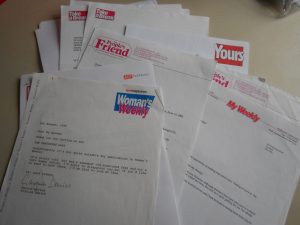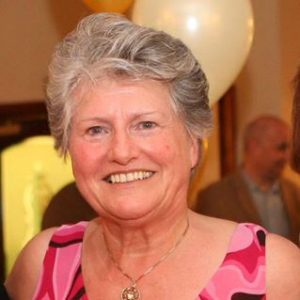 The very first short story I ever wrote I sent to Woman’s Weekly. Not long after I received a lovely rejection letter from the Fiction Editor, Gaynor Davies saying that I hadn’t quite made it with this one but encouraging me to send more stories. One of her comments was ‘Not a very happy ending’. I thought it was. The girl had a horrible boyfriend and in the end she dumped him. But it didn’t fit the market and that’s what I had to learn.
The very first short story I ever wrote I sent to Woman’s Weekly. Not long after I received a lovely rejection letter from the Fiction Editor, Gaynor Davies saying that I hadn’t quite made it with this one but encouraging me to send more stories. One of her comments was ‘Not a very happy ending’. I thought it was. The girl had a horrible boyfriend and in the end she dumped him. But it didn’t fit the market and that’s what I had to learn.
I wailed to my mum. ‘I can’t write happy endings.’
‘Of course you can,’ she said. ‘In the war we needed to know there would be happy endings. We went to the cinema to escape reality and feel there were good things to come. You can do it. Keep at it.’

I got back to work, always with these words in my head. I learned to study the market and make my work fit what editors were looking for. It taught me to write for the reader. It also taught me discipline, editing, characterisation, brevity and all those other skills a writer needs to learn to shape a story worth reading . In time, I did get used to writing happy endings.
Except that I didn’t so much think of them as happy – more as upbeat or uplifting. It helped me find a way to come up with my own version of ‘happy endings’ by thinking about it in this way. I’ve sold many short stories since, always with a ‘happy ending’ to suit what the editors were looking for.
Today the ink is barely dry on my own happy ending and I can celebrate the fact that I have a two book deal with Ebury Press, an imprint of Penguin Random House.
Will my books have happy endings? What do you think?
